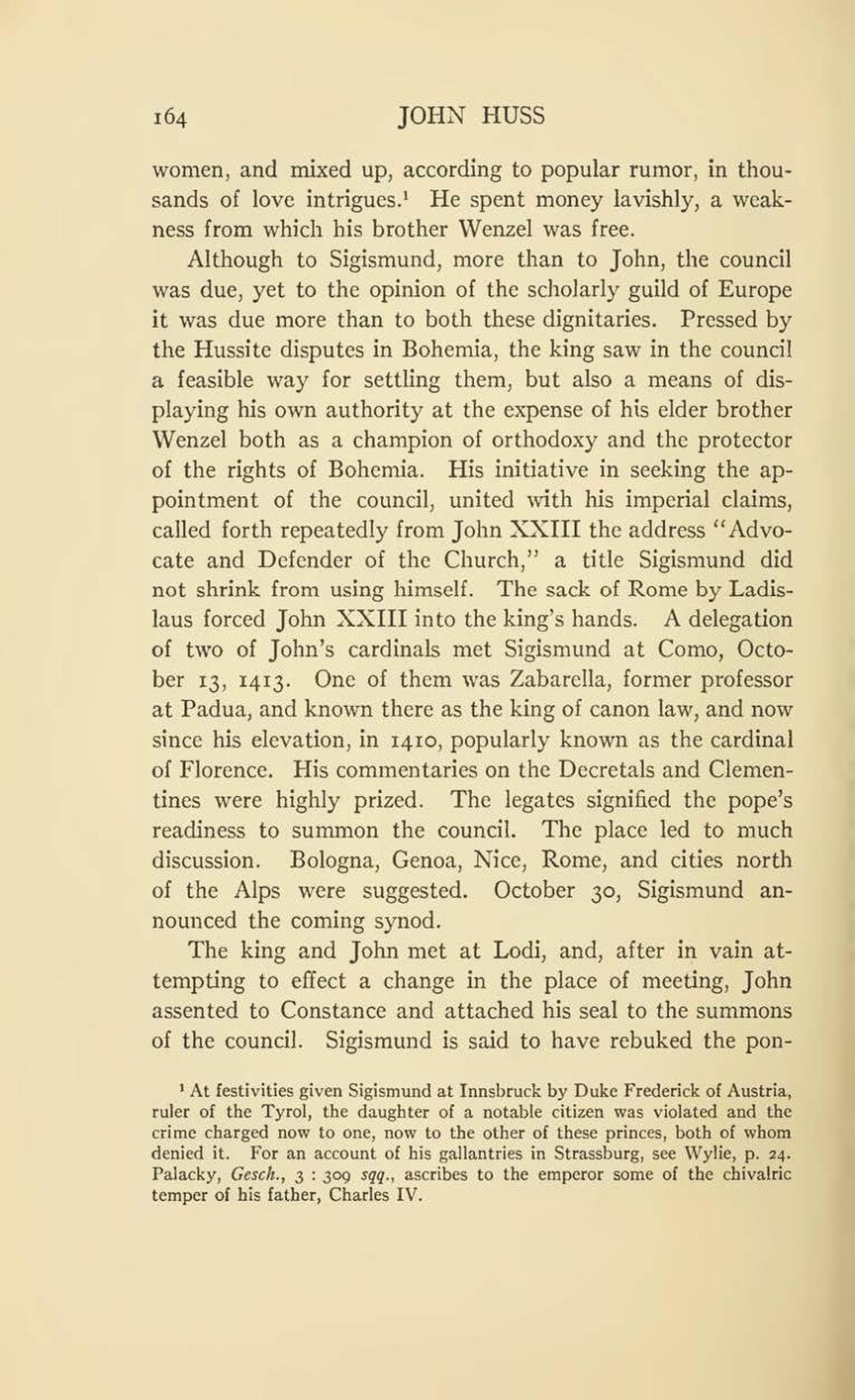women, and mixed up, according to popular rumor, in thousands of love intrigues.[1] He spent money lavishly, a weakness from which his brother Wenzel was free.
Although to Sigismund, more than to John, the council was due, yet to the opinion of the scholarly guild of Europe it was due more than to both these dignitaries. Pressed by the Hussite disputes in Bohemia, the king saw in the council a feasible way for settling them, but also a means of displaying his own authority at the expense of his elder brother Wenzel both as a champion of orthodoxy and the protector of the rights of Bohemia. His initiative in seeking the appointment of the council, united with his imperial claims, called forth repeatedly from John XXIII the address “Advocate and Defender of the Church,” a title Sigismund did not shrink from using himself. The sack of Rome by Ladislaus forced John XXIII into the king’s hands. A delegation of two of John’s cardinals met Sigismund at Como, October 13, 1413. One of them was Zabarella, former professor at Padua, and known there as the king of canon law, and now since his elevation, in 1410, popularly known as the cardinal of Florence. His commentaries on the Decretals and Clementines were highly prized. The legates signified the pope’s readiness to summon the council. The place led to much discussion. Bologna, Genoa, Nice, Rome, and cities north of the Alps were suggested. October 30, Sigismund announced the coming synod.
The king and John met at Lodi, and, after in vain attempting to effect a change in the place of meeting. John assented to Constance and attached his seal to the summons of the council. Sigismund is said to have rebuked the pon-
- ↑ At festivities given Sigismund at Innsbruck by Duke Frederick of Austria, ruler of the Tyrol, the daughter of a notable citizen was violated and the crime charged now to one, now to the other of these princes, both of whom denied it. For an account of his gallantries in Strassburg, see Wylie, p. 24. Palacky, Gesch., 3: 309 sqq., ascribes to the emperor some of the chivalric temper of his father, Charles IV.
